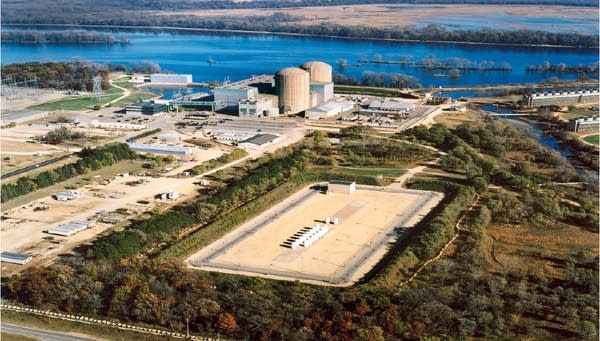New Legislature brings opportunity to repeal ban on nuclear, coal plants
Go Deeper.
Create an account or log in to save stories.
Like this?
Thanks for liking this story! We have added it to a list of your favorite stories.

State moratoriums on new nuclear and coal-fired plants are targeted for repeal when the Legislature begins its work this week. Some legislators say the key energy laws have outlived their usefulness.
Minnesota has had a moratorium on new nuclear power plants since 1994. That's when Xcel Energy asked the Legislature for permission to store nuclear waste above ground at its Prairie Island plant. Part of the deal they worked out was a ban on new nuclear power plants in the state.
In 2007, the state put a moratorium on new coal-fired power plants. It was part of a big package of energy reforms embraced by then-Gov. Tim Pawlenty and the Legislature.
Both laws were aimed at boosting efficiency, encouraging wind and solar power, and keeping more energy dollars at home.
Turn Up Your Support
MPR News helps you turn down the noise and build shared understanding. Turn up your support for this public resource and keep trusted journalism accessible to all.
But to some legislators, the bans don't make sense. And during this legislative session, they have a chance to eliminate them.
"Why wouldn't we build a new coal plant here, and keep the tax base and employment here ... in Minnesota?"
At least two bills to do that will start their journey through the Legislature at the House Environment, Energy, and Natural Resources Committee, chaired by state Rep. Denny McNamara, R-Hastings. McNamara favors lifting both bans, although he said Minnesota won't see a new nuclear plant for years.
"Before we go building another nuclear plant we've got to address storage issues, there's a lot of other things," McNamara said. "But right now we can't have a discussion, we don't allow the power companies to look at the feasibility."
Current Minnesota law does two things: it bars the state from issuing a permit for a nuclear power plant, and prevents utilities from asking their customers to pay to plan for one.
State Rep. Bill Hilty, DFL-Finlayson, wants to keep the nuclear plant ban in place. Hilty sees it as a form of ratepayer protection. Hilty, who chaired the energy committee in recent years, said the few nuclear plants now being built around the world are turning out to be very expensive.
"Not only by far [the] most expensive energy option, but also the costs have risen well beyond the original estimates on which the project was sold," he said.
In Minnesota, Xcel Energy has two nuclear plants, which produce about a quarter of the power the utility sells in Minnesota.
Xcel officials say they're not lobbying on the issue, but the company and other utilities would like to repeal both bans -- the one on nuclear and the one on coal. They say that would create a clearer discussion about what Minnesota's energy future should be.
The coal plant moratorium takes on more urgency this year because Great River Energy, a power producer that serves 28 member co-ops and more than one million Minnesotans, has built a coal-fired plant near Jamestown, North Dakota. It's scheduled to go on line in about a year.
Great River Energy wants to use some of that power to serve its Minnesota customers. State law not only prohibits utilities from adding more coal generation in Minnesota, it blocks the transmission of more coal-produced electricity from other states.
State Rep. Mike Beard, R-Shakopee, plans to introduce a bill to suspend the coal ban.
"Why wouldn't we build a new coal plant here, and keep the tax base and employment here, and the electrical energy generation and the economic stuff that goes with it, here in Minnesota?" asks Beard.
Coal accounts for more than half of Minnesota's electricity.
North Dakota officials have threatened to sue Minnesota over the rule ever since it was passed. McNamara said it's a good opportunity to turn the tables and influence our neighbor to the west.
"We've been real progressive and forward-thinking about limiting mercury and emissions like that, so we're going to have a discussion about how is North Dakota going to deal with those issues, and are they going to get more in line with where we are."
Environmental groups are gearing up to fight the bills. They see them as a reversal of direction for the state.
Gov. Mark Dayton, who campaigned to keep the nuclear ban in place, notes that utility company plans show they have enough power until at least 2020.
"Frankly given the priorities of the state and the fiscal mess that we all agree we've inherited, I think it's a waste of everybody's time," Dayton said of the proposed legislation.
The governor stopped short of saying he would veto either bill.




